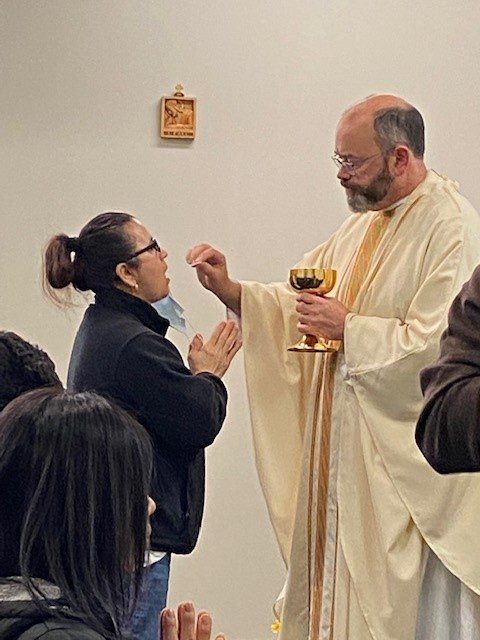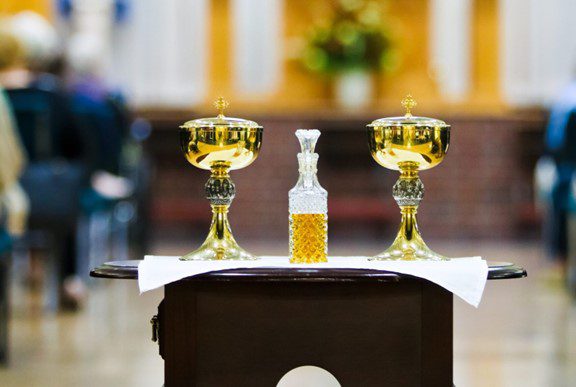
As Catholics, we fully participate in the celebration of the Eucharist when we receive Holy Communion. The Church sets out specific guidelines regarding how we should prepare ourselves to receive the Lord’s body and blood in Communion.
To receive Communion worthily, you must:
- be in a state of grace
- have made a good confession since your last mortal sin
- believe in transubstantiation
- observe the Eucharistic fast of one hour
- be free of any ecclesiastical censure such as excommunication.
Communion may be received either in the hand or on the tongue, kneeling or standing.
We also welcome to this celebration those who do not share our Catholic faith. While we cannot admit them to Communion, we ask them to come forward with their arms crossed over their chest to receive a blessing from the priest. Or they may remain in their seats and offer their prayers for the peace and the unity of the human family.
Receiving the Sacraments while Homebound
Ill health should never separate a person from the Sacraments. If you, or a member of your family, is homebound please contact the Parish Office: 706-548-6332 to arrange a visit from an Extraordinary Minister of Holy Communion or to request a visit from a priest for a private Confession.
First Holy Communion
Children preparing for First Holy Communion are usually in conjunction with that of First Reconciliation, through a two year program called Basic Faith I and Basic Faith II.
For more information, submit the Inquiry Form or contact the Religious Education office: 706-548-6332, extension 510
**For Adults or teens entering the church, Communion is one of the initiation Sacraments that represent the culmination of the Rite of Christian Initiation. (RCIA/RCIA)

